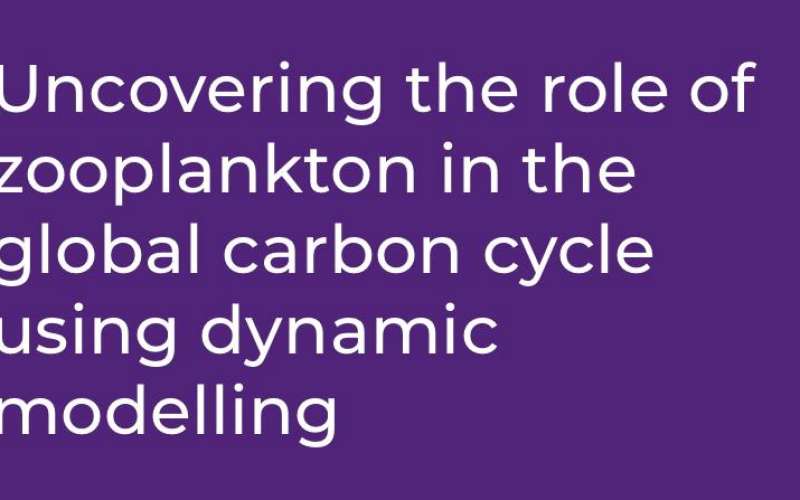Uncovering the role of zooplankton in the global carbon cycle using dynamic modelling
Career Development
⦿Aug 27, 2024

This is an Earmarked scholarship project that aligns with a recently awarded Australian Government grant.
Project summary
Program: PhD
Location: St Lucia
Research area
Agricultural, veterinary and food sciences, Environmental sciences
Project description
Understanding the role of zooplankton is arguably the biggest gap in our knowledge of the ocean carbon cycle. Addressing this gap is therefore critical to improving projections of global carbon sequestration under climate change. Zooplankton constitute 40% of total marine biomass and have diverse roles in active and passive vertical carbon transport across the world’s oceans. Yet all these features are poorly resolved in biogeochemical and ecosystem models. Developing new ways to model zooplankton is key to solving this puzzle. In this project we aim to further resolve zooplankton traits and processes in an innovative ecosystem model. We will use the model to explore present and future impacts of climate change on the global ocean’s capacity to regulate carbon in the Earth’s atmosphere.
Working with an international team of zooplankton ecologists, applied mathematicians and climate change scientists, you will develop a next-generation global marine ecosystem model that resolves important pathways of carbon transport through the zooplankton. Using this model, you will quantify the role of zooplankton in regulating the biological pump under climate change.
You will have demonstrated skills in dynamical modelling (e.g., using differential or difference equations), coding experience (in any programming language), and strong written and communication skills. You do not need to have experience in marine ecology, but you must have a keen interest to learn.
This position is funded through the Australian Research Council Discovery Project Zooplankton: the missing link in modelling the ocean carbon cycle. Collaborators include: Dr Ryan Heneghan (The University of the Sunshine Coast), Prof. Evgeny Pakhomov (The University of British Columbia), Dr Colleen Petrik (University California San Diego), Dr Andrew Lenton (CSIRO).
Research environment
You will work with an international team of zooplankton ecologists, applied mathematicians and climate change scientists.
Scholarship
This is an Earmarked scholarship project that aligns with a recently awarded Australian Government grant.
The scholarship includes:
- living stipend of $35,000 per annum tax free (2024 rate), indexed annually
- your tuition fees covered
Learn more about the Earmarked scholarship.
Supervisor
Principal supervisor
Professor Anthony Richardson
School of the Environment
View Professor Anthony Richardson's profile
You must contact the principal supervisor for this project to discuss your interest. You should only complete the online application after you have reached agreement on supervision.
Always make sure you are approaching your potential supervisor in a professional way. We have provided some guidelines for you on how to contact a supervisor.
Preferred educational background
Your application will be assessed on a competitive basis.
We take into account your:
- previous academic record
- publication record
- honours and awards
- employment history.
A working knowledge of coding (especially in the R programming language) would be of benefit to someone working on this project.
You will demonstrate academic achievement in the field of ecosystem modelling and the potential for scholastic success.
A background or knowledge of size-based modelling is highly desirable.
How to apply
This project requires candidates to commence no later than Research Quarter 1, 2025. To allow time for your application to be processed, we recommend applying no later than 30 September, 2024 .
You can start in an earlier research quarter. See application dates.
Before you apply
- Check your eligibility for the Doctor of Philosophy (PhD).
- Prepare your documentation.
- Contact Professor Anthony Richardson (a.richardson1@uq.edu.au) to discuss your interest and suitability.
When you apply
You apply for this scholarship when you submit an application for a PhD. You don’t need to submit a separate scholarship application.
In your application ensure that under the ‘Scholarships and collaborative study’ section you select:
- My higher degree is not collaborative
- I am applying for, or have been awarded a scholarship or sponsorship
- UQ Earmarked Scholarship type.
- Share This Job

Write A Comment
No Comments